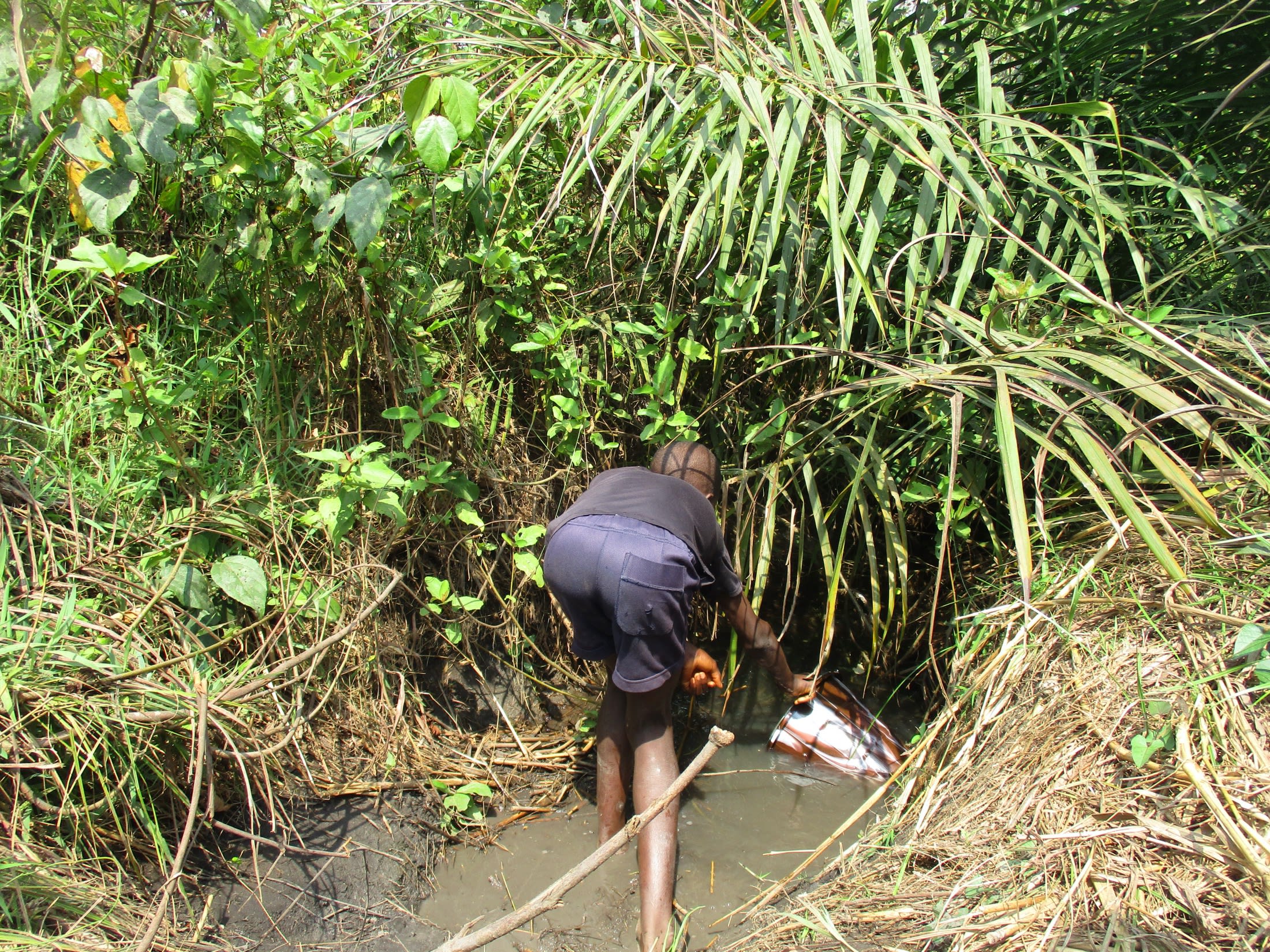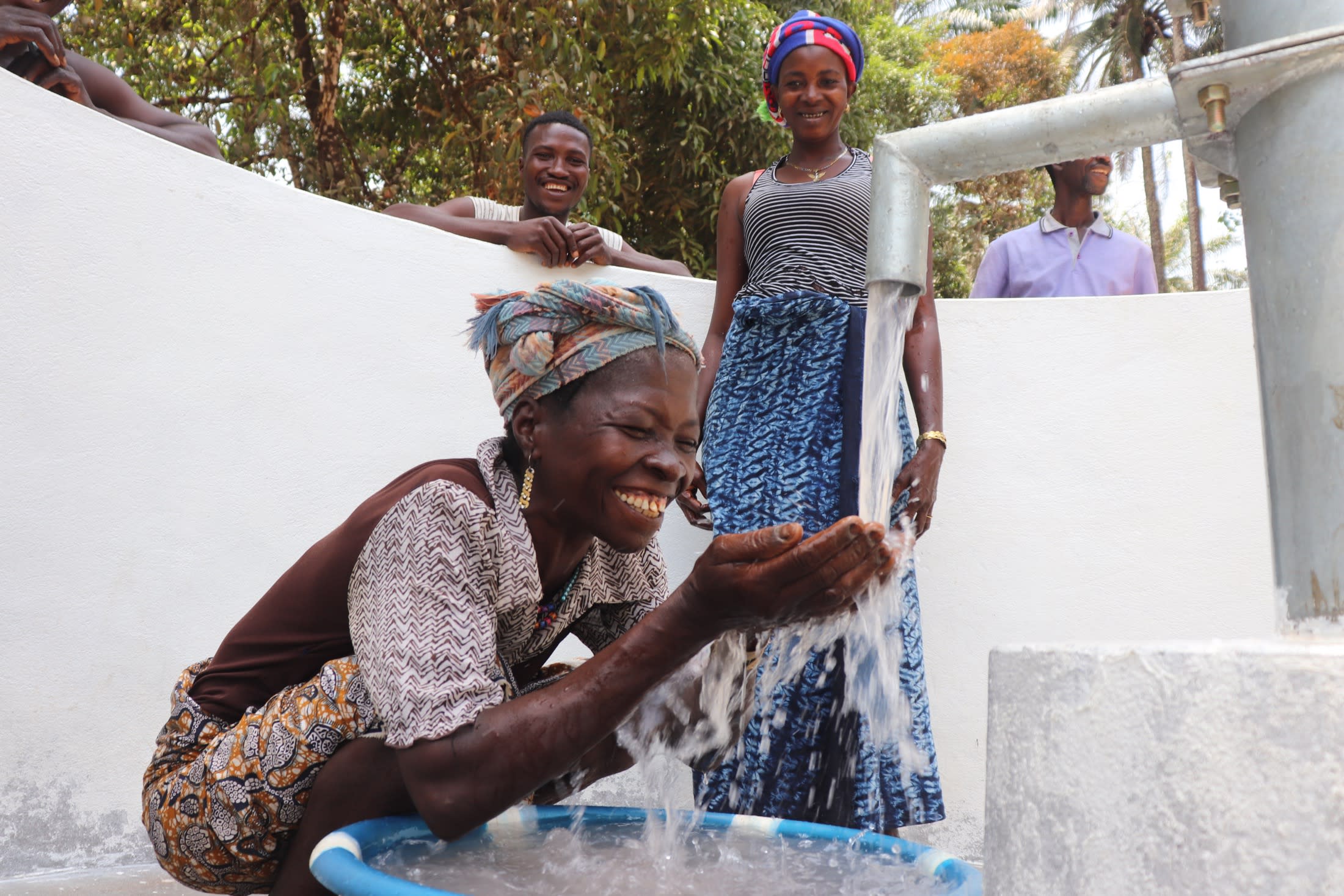Each morning and evening, 15-year-old Ousman travels to get water from what is essentially a large puddle.

"I get up every day to fetch water for my mother. I have four brothers and sisters, but since I am the oldest, it is my responsibility," said Ousman.
"I do a lot more work than my siblings. It is not right, but my mother says it's because I am older and stronger."
This water source is unsafe for drinking. It is open to contamination and is the cause of people contracting waterborne illnesses such as dysentery and cholera. Students like Ousman miss school time due to being sick and getting water from this source every day.
"The debris and dirt in the water pulled are made up of leaves, frogs, tadpoles, fish, and leeches. It is disheartening to have people still drinking water from such contaminated sources," said our field officer after seeing the water source.
Because the source is so contaminated, some of the 186 people who rely on it travel as early as 4:00 AM to get water. Armed with a flashlight and a bucket, these early risers arrive in the hope that the water has settled overnight so that what they fetch has as little dirt as possible.
"As a father, I am expected and obligated to take care of my family. Anything less does not make me a good father to my family. I feel really sad and bad that the basic human right of having access to clean and safe water cannot be provided," shared Idrissa Yillah, a 42-year-old farmer who lives in the village.
"The most important thing in any community is the access to safe water. I watch my children day in and day out, waiting and waiting with looks of disappointment on their faces, and I feel helpless because there is nothing I can do.
The water fetched in the evening or at night is used for household chores because it is filthy, so it cannot cook or drink.
We will be drilling a well in the center of Santamodia Village to be easily accessible to the community members. This project will relieve the people here of their water challenges.
"If you are going to help us with a well, that will be great. I will probably be given other chores and responsibilities to fill the time when I will no longer have to go to the swamp," Ousman said.
"But, it is better than going to the swamp. I will only have to go to the farm, which is not going to be all the time but mostly on weekends when there is no school. That is going to be a big help."
Our team will drive over the LS200 mud rotary drill rig and set up camp for a couple of nights. Once the well is drilled to a sufficient water column, it will be cased, developed, and then tested. If these tests are positive, our mechanics will install a new India Mark II pump.
By drilling this borehole, Santamodia Community will be provided with plenty of accessible clean drinking water.
There will also be hygiene and sanitation training sessions offered for three days in a row. This training will strengthen a water user committee that will manage and maintain this new well. They will enforce proper behavior and report to us whenever they need our help in solving a serious problem, like a pump breakdown.
Community members who attend will learn how to make a hands-free handwashing station called the "tippy-tap." We will use these tippy taps for handwashing demonstrations and will also teach about other tools like dish racks and the importance of properly penning in animals. We will highlight the need to keep latrines clean, among many other topics.

 Borehole Well and Hand Pump
Borehole Well and Hand Pump
 Rehabilitation Project
Rehabilitation Project






























